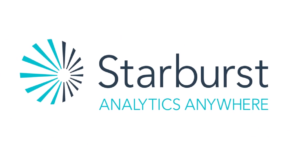
Starburst Acquires Fellow Trino Supplier, Varada

Starburst solidified its position in the market for next-gen data analytics engines yesterday with the acquisition of Varada, a former competitor that developed and sold an analytics engine based on Presto. Terms of the deal were not disclosed.
Boston, Massachusetts-based Starburst jumped out to an early lead in the burgeoning market for software and services based on Presto, the headless, open source SQL query engine developed at Facebook as the faster and more powerful successor to Apache Hive, which ran in a distributed manner but was always dogged by slow ad-hoc analytics speeds.
Starburst, which was spun out of Teradata in 2017, was the first vendor to productize Presto. While the distributed engine is powerful, setting up Presto environments is complex, thanks in part to its ability to support multiple back-end storage repositories. Today, Starburst develops software based on Trino, the open source variant of Presto that emerged as Presto SQL in 2020 following disagreements in the upstream Presto community (the other fork was called PrestoDB).
Varada was one of a small number of competitors that emerged to take on Starburst, which has raised $414 million and was last valued at $3.35 billion earlier this year upon completion of its Series D round of funding. Another vendor, Ahana, also provides Presto-based services in the cloud based on PrestoDB. Amazon Web Services is likely the largest Presto/Trino provider with Athena, a serverless SQL analytics service based on Presto.
Varada was founded in Tel Aviv, Israel-based in 2017 to develop solutions based on Presto SQL, which was re-named Trino in 2020. The company, which had raised $19.5 million in a single Series A, launched its cloud-based offering in 2020.
Starburst says it acquired Varada in part for its proprietary indexing and caching technology, which the larger company says “sets a new benchmark in data lake analytics.”
“Varada splits the data to be processed into blocks and then automatically chooses the most effective index for each block based on the data content and structure,” Starburst says in its press release. “This ensures data is available for fast analysis, reducing query response times up to 7x.”
Varada also has a “smart cache” that helps to speed queries on frequently accessed data. Starburst says Varada gives customers the capabilities to adjust the settings of the smart cache to meet performance and budget requirements.
Starburst also mentioned Varada’s “workload-level monitoring” capabilities, which can detect hot data and bottlenecks in the data environment. The company says this feature can help cloud customers reduce costs by 40%.
“This acquisition is about helping customers take their data lake analytics to the next level, helping them move faster with critical decision-making while reducing data management costs,” Starburst Co-Founder and CEO Justin Borgman stated in a press release. “With the addition of Varada’s indexing technology, we can help data teams better serve the business, providing the right data right now.”
Varada CEO Eran Vanounou said the company made a bet early on which data lake query engine would win the analytics race. “Trino stood out immediately for its flexibility, vibrant community, and success as the query engine of choice for the largest internet-based businesses like Netflix, Lyft, and LinkedIn,” Vanounou said in a press release. “Not only was it the perfect fit for Varada’s smart indexing technology, but now Starburst and Varada can join forces and deliver a new standard for speed and cost savings for data lake analytics.”
Both Starburst and Varada are among a handful of companies striving to build open data lakes in the cloud. By allowing customers to query data residing in any storage format and storage repository, these open data lakes avoid the type of lock-in that customers who select a single cloud data warehouse must cope with, they say.
Related Items:
Starburst Nabs $250M for Open Analytics on Data Mesh
Cloud Data Warehousing: Understanding Your Options
Presto Poised for a Breakout Year as Data Explosion Continues






























